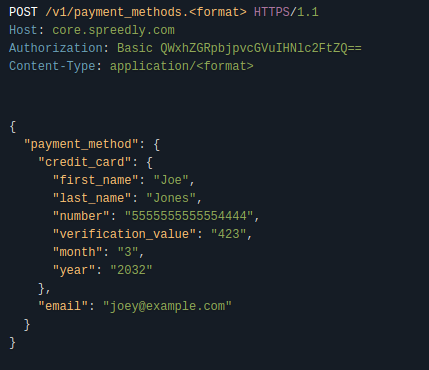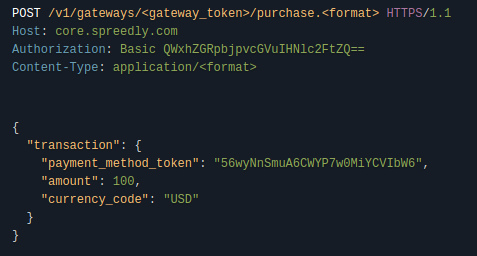Online buyers transact through systems ranging from ACH to PayPal to Dwolla to Bitcoin trades, and request to have the ability to pay for products how and when they please. With the number of consumer payment options increasing, how can developers ensure that they can accept these available payment offerings? How can they improve their platforms for varied payment gateways and ensure data security compliance simultaneously? Nowadays payments merchants and marketplaces need to select a provider that meets their wide range of business requirements such as credit card processing rates, fraud, international/currency, marketplace support and many more. Spreedly is one of the perfect answers for this necessities.
Spreedly is a cloud-based credit card repository which allows working with one or multiple payment gateways over time or concurrently. It reduces your PCI compliance scope, works with the payment gateways like PayPal, Stripe, Dwolla and so on. It allows your customer to securely store credit cards and use them to transact against any number of payment gateways and third-party APIs. It does this by simultaneously providing a card tokenization/vault service as well as a gateway and receiver integration service. The unique factor about Spreedly is that the card can be presented to different gateways over time. It offers customers a credit card vault in the cloud that works with 100 different payment gateways. By using tokenization, it is able to execute against any number of gateways and APIs on your behalf without indexing the credit card data to the servers.
How Spreedly Works
At Spreedly, you can quickly capture and store your customer’s credit card data. For processing, once data stored and tokenized, you can forward your stored payment information to your supported payment gateways, or third party PCI compliant API via Spreedly. It returns a credit card token, and that token is referenced for single or repeat transactions as needed. When you’re ready to transact against a customer’s credit card token, use the API of payment gateway or third-party API to run the charge against. Spreedly maps the credit card token to the actual credit card data and passes the data directly to the transaction recipient. Now, you can securely be passed credit card data to the payment gateway and avoided PCI scope.
In order to integrate Spreedly in your Web application you need to register for a Spreedly account and then get an environment key and access secret which serve as your API credentials.
For that you need to create an environment by logging in and selecting the “Environments” tab. You will see a “New Environment” button which you need to select to get the environment form. After submitting the form your environment has been created and you will get an environment key.
After getting environment key, you need an access secret which will authorize your API calls.
Before you can run a transaction through Spreedly, you need to add a payment gateway to your environment. Using your API credentials, add a payment gateway by Posting to the Spreedly API endpoint.
You need to store your users’ credit card information after that Spreedly can transact against your payment gateway.
Once you have a gateway provisioned for your environment and have collected payment information from your users, you can begin making purchases and other transactions.
Spreedly is a pioneer in simple security software designed to facilitate a better payment experience by creating new ways for merchants, platforms and payment providers to work together. Spreedly’s integration with Web application provides a solution that allows your web applications to process recurring transactions by referencing a universal token and passing it to your universal API. It concentrates on creating payments software combined with business flexibility for an optimal payment experience. Their world-class payments infrastructure enables customers to minimize PCI compliance scope, while quickly deploying payment solutions, based on advancing business needs.












